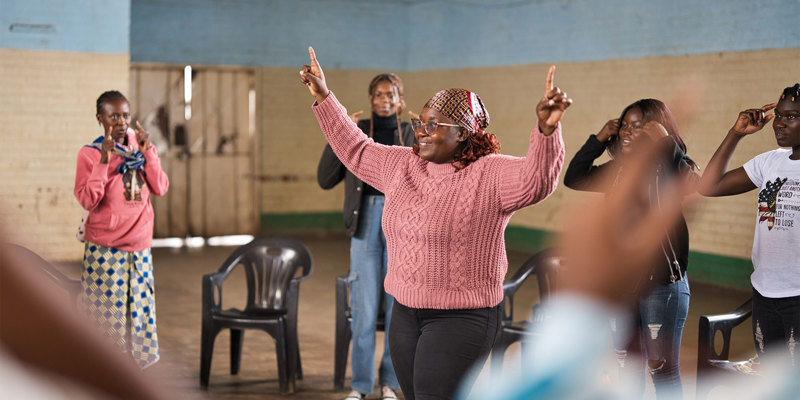Global Fund Board Approves New Strategic Framework
17 November 2015
GENEVA - The Board of the Global Fund to Fight AIDS, Tuberculosis and Malaria approved a new framework for its 2017-2022 strategy to maximize impact, strengthen systems for health, promote and protect human rights and gender equality, and mobilize additional resources.
At a two-day Board meeting, partners agreed to prioritize efforts that reach more people and achieve greater impact through innovative approaches that meet diverse country needs. The Global Fund invests nearly US$4 billion each year in programs in communities and countries all over the world to accelerate the end of HIV, TB and malaria as epidemics.
The strategic framework sets the structure for a multiyear strategy with a fuller narrative that is expected to be finalized in 2016. Several Board members commented on the extensive consultations and broad engagement in the year-long process in devising the strategic framework, intended to capture feedback from across the Global Fund partnership. Hundreds of partners participated in strategy discussions at Partnership Forums that were convened in Addis Ababa, Bangkok and Buenos Aires, and contributed through an e-Forum that collected views from all over the world.
"The strategic framework shows considerable progress on human rights, as well as the commitment of the Global Fund to demonstrate investments in women and girls," said Rico Gustav, Alternate Board member of the Communities Delegation. "Looking forward, we need an allocation methodology aligned with the strategic framework for the impacts to translate into saving lives."
At the Board meeting, led by Board Chair Norbert Hauser and Vice Chair Aida Kurtovic, members also voted to approve an operating budget and corporate work plan for 2016.
The new strategic framework is fully aligned with the Sustainable Development Goals embraced by member states of the United Nations in September 2015, with a holistic and multidisciplinary approach that seeks to reach those most in need, reduce inequalities, and support sustainable transition across the development continuum as countries move toward self-sustainability.
The new strategic framework underlines Global Fund commitment to contribute to building resilient and sustainable systems for health together with robust national strategies for health and with national disease-specific strategic plans in each country.
Several Board members spoke about the importance of strengthening data systems, and using existing data more effectively. The strategic framework also includes the need to expand steps to strengthen global and in-country procurement and supply chain systems.
At the Board meeting, there was broad consensus on the need to expand programs that reduce human rights barriers to health, while also continuing to integrate human rights concerns into the grant cycle and policies.
The Board provided guidance to further refine the allocation model to effectively deliver on the strategy of increasing impact on countries with the highest burden of disease and least ability to pay, and for key and vulnerable populations who are disproportionately affected by the three diseases.
In considering potential refinements, the Board considered extensive reports by the Technical Review Panel and the Technical Evaluation Research Group, and an in-depth review of the Board's 2012-2016 strategy which concluded that the new funding model implemented in 2014 is delivering significant results.







